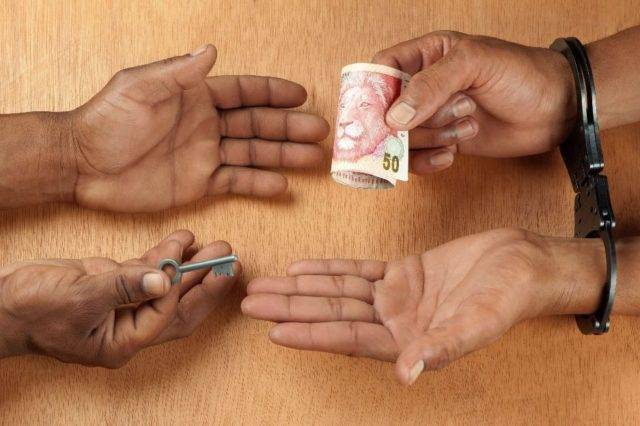By Alusine Fullah
Corruption is a term we often hear in today’s society, yet its impact on our daily lives can be profound. Corruption takes many forms, from petty bribery to large-scale embezzlement, and affects people everywhere. But what exactly is corruption, and how does it affect society? In this CONCH article, we’ll explore the insidious effects of corruption on individuals, communities, and even entire nations. So buckle up, grab a coffee (or beverage), and dive into this important topic!!
A common definition of corruption is the misuse of authority for personal benefit. Many behaviours, including extortion, vote-buying, fraud, cronyism, and nepotism, can be used to demonstrate it. In a corrupt society, government officials and those in positions of power are more likely to use their authority for personal gain rather than for the public good. This can lead to widespread mistrust of government and institutions and a declining rule of law.
Corruption also hurts economic development. When businesses have to pay bribes to get things done, it raises the cost of doing business and makes it harder for honest companies to compete. Corruption can also discourage foreign investment and hinder economic growth. Yes, indeed, for me corruption is contagious disease.
The fight against corruption has been a global pillar for all and sundry. Deputy Secretary-General Amina Mohammed of United Nations said: “We will not recover from this global economic downturn without a concerted effort to end corruption”, he concluded.

“Each Member State, and indeed each individual, has a responsibility to be vigilant, to take preventative measures, and to uphold the rule of law, without exception.”
Coming to our national laws as a country, corruption has been long ago been declared as a national enemy. For the past decades, several efforts have been made to fight against corruption. However, corruption is still fighting back in all sectors.
In his book, “Corruption and Society: the Effects” Broom Hoot highlighted four negative effects of corruption: undermining the rule of law and the legitimacy of government; creating an environment where crime and bribery flourish; discouraging foreign investment and damaging economic growth; eroding public trust in institutions and fueling social unrest.
There are several ways to prevent corruption, but for the purpose of this article, I will just mention four:
Strengthening institutions and increasing transparency: This can be done by improving governance structures and making information more readily available to the public. Additionally, enhancing accountability mechanisms can ensure that those who engage in corrupt activities are held accountable for their actions.
Reducing opportunities for corruption: his can be done by simplifying regulations and procedures and increasing competition in providing goods and services.
Improving public sector integrity includes establishing clear codes of conduct for public officials, strengthening anti-corruption laws and their enforcement, and creating independent oversight bodies to monitor compliance with ethical standards.
Engaging citizens in the fight against corruption: It is important to create an environment in which citizens are encouraged to report instances of corruption and where they feel confident that their reports will be acted upon appropriately. Education campaigns can also raise awareness of corruption’s negative effects and promote integrity among members of the public.












